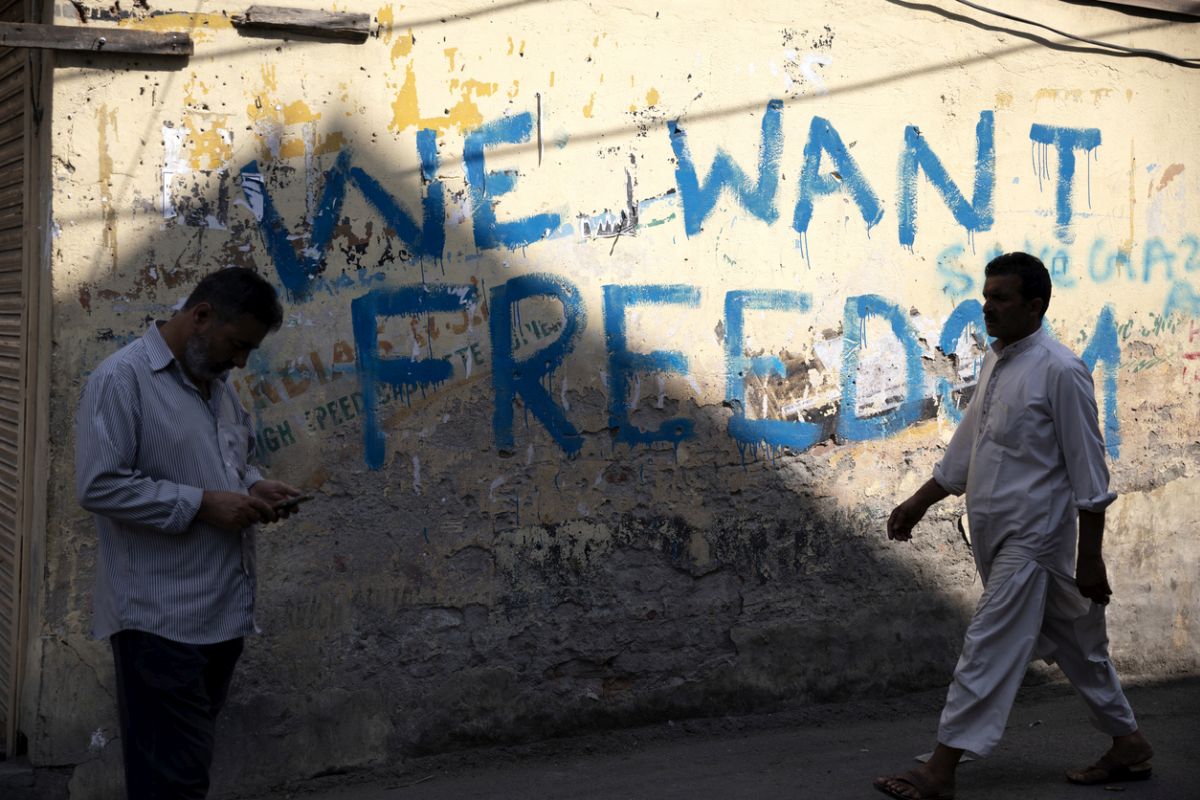Biotech potential of J&K needs to be explored: Dr. Jitendra Singh
He underscored the rise in DBT’s Budget from 1,485 crores in 2013-14 to 3,447 crores in 2025-26 almost marking 130% increase.
The pleas had claimed that the 2G Internet services are not sufficient enough to conduct education and other services.

While declining to restore 4G Internet services, the Supreme Court observed that it has to ensure that national security and human rights are balanced. (Photo: iStock)
The Supreme Court on Monday declined to restore 4G Internet services in Jammu and Kashmir for now, emphasizing the necessity to strike a balance between national security and public need.
During a hearing on various pleas for restoration of 4G internet services in Jammu and Kashmir, the apex court directed the Centre to immediately set up a high-powered committee headed by Home Secretary to examine grievances in connection with the continuation of restrictions.
Advertisement
The committee will also include Secretary, Ministry of Communications and Chief Secretary Jammu and Kashmir.
Advertisement
A bench comprising Justices NV Ramana, R Subhash Reddy and BR Gavai said it is appropriate to constitute a special committee comprising secretaries at national and state level — Secretary, Ministry of Home Affairs, Secretary Department of Communications and the Chief Secretary, Union Territory of Jammu and Kashmir — to look into the prevailing circumstances and immediately determine the necessity of the continuation of the restrictions in the Union Territory.
While declining to restore 4G Internet services, the Supreme Court observed that it has to ensure that national security and human rights are balanced. The court added that it recognizes that UT has plunged into crisis but at the same time, it is cognizant to the concerns related to the ongoing pandemic and hardships.
The pleas had claimed that the 2G Internet services are not sufficient enough to conduct education and other services.
The top court noted that the special committee is directed to examine the contentions of, and the material placed by the petitioners, seeking restoration of 4G Internet services, and the Centre opposing high speed internet.
“The aforesaid Committee must also examine the appropriateness of the alternatives suggested by the petitioners, regarding limiting the restrictions to those areas where it is necessary and the allowing of faster internet (3G or 4G) on a trial basis over certain geographical areas …,” said the top court.
The bench observed that the degree of restrictions should not be disproportionate.
The bench also noted “although the present orders (concerning the restrictions in the UT) indicate that they have been passed for a limited period of time, the order does not provide any reasons to reflect that all the districts of the Union Territory of Jammu and Kashmir require the imposition of such restrictions.”
Citing the menace of militancy in the region, the top court said “at the same time, we do recognize that the Union Territory of Jammu and Kashmir has been plagued with militancy, which is required to be taken into consideration”.
The Centre had submitted that continuous infiltration, foreign influence, violent extremism and issues of national integrity are prevalent in the Union Territory of Jammu and Kashmir, all of which are serious issues.
Foundation of Media Professionals and others — the petitioners — had argued that in the existing COVID-19 situation, when there is a national lockdown, the restrictions imposed on the residents of the entire Union Territory of Jammu and Kashmir impacts their right to health, right to education, right to business and right to freedom of speech and expression.
“They (petitioners) submit that access to Internet acquires even more importance under the prevailing circumstances in the country, relating to the pandemic,” noted the court.
Last week, the top court had asked the Centre and the Jammu and Kashmir administration to respond to a plea seeking directions to restore 4G internet in the Union Territory in view of the prevailing COVID-19 pandemic.
The 4G internet services were made unavailable in the state after the Central government abrogated article 370 on August 5, 2019 and placed an unprecedented communication lockdown in the erstwhile state.
Advertisement